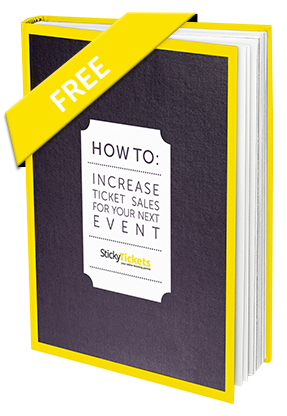5 Things Not to Do With Your Event

You may have been planning events for years and happen to overlook things, or you can be new to it all and are lumped with organising a big event. Either way, planning is the key, and here are 5 things not to do with your event!
· Not allowing enough lead time. Planning an event takes time, and this is non-negotiable. The best prices for venues are always found when booked a long time ahead, and suppliers are easier to book. You need to allow enough time to promote your event, get a buzz around it, and send out invitations and allow enough time for people to block the date out. Luckily, it takes just minutes to set up your event on Sticky Tickets!
· Not having a budget. If you try and skimp on everything, the attendees will notice. If you go overboard with the costs, it will ruin you! This is why having a budget is critical, as well as keeping track of your costs. You will also need an emergency fund for all of those extra costs which arise, so get your spreadsheet ready!
· Not having a schedule and sticking to it. When planning any event, timing is critical. You will need to meet suppliers at the venue beforehand and arrive at the event early to check everything is set up as you need and working. Once that is done, you will need to make sure that the timing at your actual event sticks as closely to the schedule as possible. That way you can let speakers know what time to get there, and attendees know what to expect and when. If a session goes overtime, you will notice attendees getting restless and frustrated.
· Not having a purpose. Do you know exactly why you are holding this event and what you are trying to achieve? If you are not entirely sure of why you are running the event and what your objective is, attendees will be confused, your marketing will be pointless, and you will have an event which will cost a lot of money, and achieve very little. You need to have a very clear purpose from the start and plan all activities, learning and promotion of the event with this objective in mind.
· Not thanking your attendees or following up. Following up after your event is one of the most important parts. Not only should you send out a thank you to attendees for coming and helping to make your event such a success, but you should also thank all those who contributed as well, in whatever capacity such as helpers, sponsors or donors. If you want anyone to return, you need to make them feel appreciated. This is also a very good time to reflect on your event, and get feedback from your attendees. Ask them for their thoughts- what they liked and what you can improve on, and take this on board to make your next event a success.
There are many factors involved in making your event a success, however some cannot be taken lightly. If you make the mistake of doing any of the above, you will look unprofessional, and this will reflect on not only this event, but all future events.
Good luck with your event and let us know your tips!



